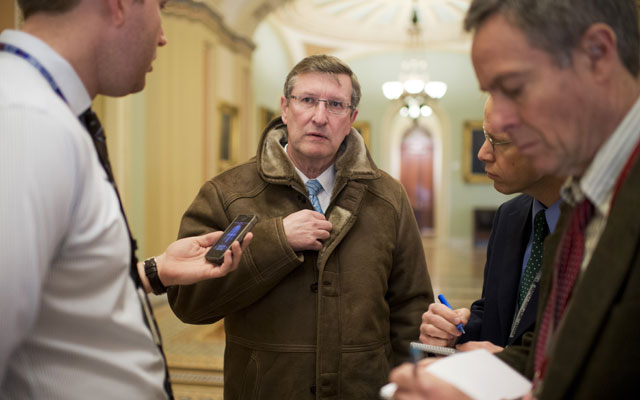When the same Congressmen who voted for Obamacare vote to repeal a provision of it, it’s obvious that provision must be totally unworkable on every level. And that’s what happened to the Community Living Assistance Services and Support (CLASS) Act.
Formally repealed in January’s fiscal cliff deal, CLASS was Obamacare’s attempt at creating a new long-term care entitlement that was once referred to by Senator Kent Conrad (D–ND) as “a Ponzi scheme of the first order, the kind of thing that Bernie Madoff would have been proud of.” CLASS was one of Obamacare’s most overt failures.
CLASS was supposed to begin in 2011 as a voluntary, government-run long-term care program that was supposed to be fully funded by beneficiaries’ premiums and require no federal tax dollars. Like most government entitlements, this deal sounded too good to be true—and it was.
This concept was so flawed that even the Obama Administration recognized that implementation had to be stopped. A letter to Congress in 2011 from a CLASS administrator warned of extreme adverse selection in the program, stating that “if healthy purchasers are not attracted to the CLASS benefit package, then premiums will increase, which will make it even more unattractive to purchasers who could also obtain policies in the private market. This imbalance in the beneficiary pool would cause the program to quickly collapse.”
In 2010, Heritage warned that CLASS would ultimately lead to mandatory participation or a permanent taxpayer bailout:
First, premiums could be raised to cover the expected benefits, but that would exacerbate the adverse selection problem. Second, the benefit package could be cut, harming participants who were expecting a certain type of benefit. Third, participation could be made mandatory. While this would alleviate the adverse selection problem, it would saddle many individuals with a government product that they do not value at its cost.
While taxpayers can take comfort that they won’t have to bail out or participate in this entitlement, the same cannot be said for the rest of Obamacare.
For one thing, there is already a mandate to participate in Obamacare. Secondly, if the other two new entitlements—the Medicaid expansion and exchange subsides—are implemented, the American taxpayer will be held accountable for their cost for the foreseeable future, which over the next 10 years will be over $1.8 trillion.

